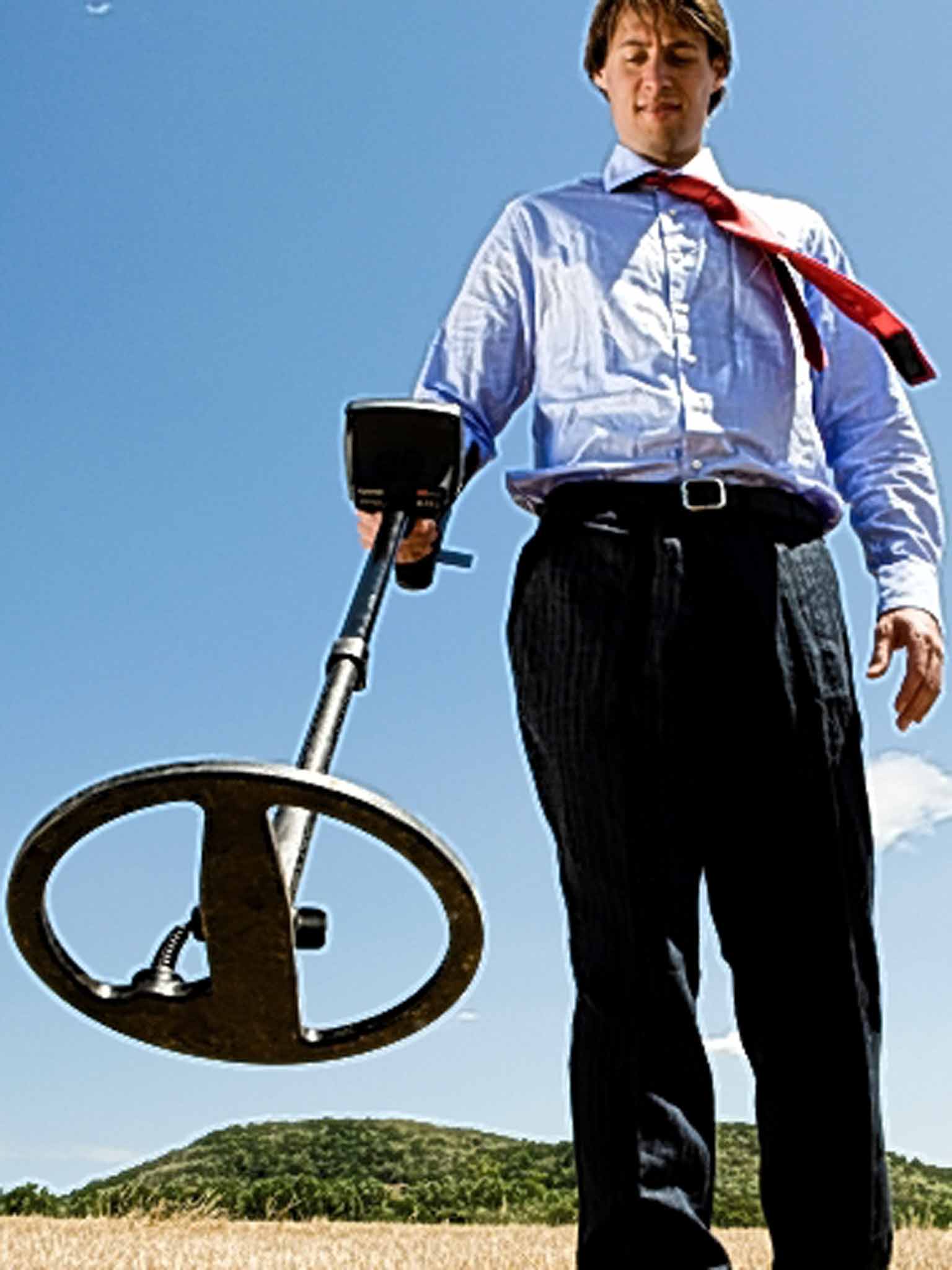The rise of detectoring: Holding history in your hands
'Detectoring' may be ever more popular, but digging up gold is now attracting pirates. Louis Ashworth, winner of our 2015 young journalist award, investigates the hobby's underworld

Early one Sunday morning, Mike Nicholas and 16 fellow club members trudge through a field, wrapped in coats and scarves. Nicholas, from North Yorkshire, has a shovel in one hand and in the other his most prized possession – a metal detector.
The group fans out, a few yards between each member, to cover the area. They talk occasionally, but are usually silent, focused on the sounds in their headphones, as they drift their devices gently over the dewy ground. Normally a search yields a dozen or so coins of various ages – which, when swept over, produce a positive sound, like a squeaky toy being chewed. So far they've found nothing. But that doesn't stop them searching: finds have been made in the most unlikely of places.
Every weekend tens of thousands of metal-detector enthusiasts, who call themselves "detectorists", head out into Britain's fields, over its hills and across its beaches, hoping to dig up relics of history. Clubs of hoard hunters can be found from Inverness to Torquay, working in cooperation with landowners and museums to track down "treasure". The National Council for Metal Detecting, based in Doncaster, has closely regulated the hobby since 2006 and believes there at least 25,000 registered detectorists in the UK, with many more casual treasure-seekers out there.
After use in the Second World War for minesweeping, metal detectors first became accessible to the public in the 1960s, with the introduction of light, portable units. Early detectors were rudimentary, but by the 1970s they had improved dramatically, triggering a spate of discoveries tnat continues to this day.
"There's something magical about it," says Nicholas, who got into the hobby after seeing adverts for detectors in the back of archaeology magazines in the 1980s. "You can find something that hasn't been touched for hundreds or thousands of years, and know that you're the first person to see it since the day it was lost."
Though it has been highly lucrative for its most fortunate practitioners, metal detecting generally proves the triumph of hope over experience. Still, despite frequent finds of curtain rings, iron nails and "partifacts" – small pieces of metal that can't be identified – stories of such incredible finds as the £1m hoard of 5,400 Anglo Saxon coins recovered in Buckinghamshire last year – spur them on, .
"That link to history – that's what is amazing to me. To hold history in your hands," says Nicholas. Though recent price drops have opened up the hobby to a new generation, with basic detectors available for as little at £100, Nicholas has invested £6,000 in two high-end models. And his greatest find so far? A small bronze statuette – Nicholas thinks it's from the Roman era – which is currently being inspected by a Finds Liaison Officer.
Finds liaison is only one aspect of the regulation of detectroring. Before they search, clubs must get permission from landowners, and agree to split with them the earnings from anything found and subsequently sold. Most importantly, clubs have to promise to respect the land they search, and leave it in the state they found it in, while any treasure – that is any item over 300 years old – is submitted to the historical authorities for inspection.
Any whisper of an underground El Dorado has a dark side, however. Recent lucartive finds have also attracted some less respectful treasure hunters. There is a growing problem of bandits armed with detectors raiding historical sites (often treasure hotspots) at night, and leaving areas looted and damaged. And now these clandestine "nighthawkers" are the targets of a growing police operation. In the past few years, dozens of suspicious Ebay listings have led to questionings, and in 2012 two men were arrested and slapped with Asbos after being caught nighthawking in Northamptonshire.
Sadly, their actions discredit legitimate detectorists, and have made some people suspicious of benign sweepers. Mentioning nighthawkers sparks Nicholas's vitriol. "I despise them. They're taking something out of its archaeological context, and throwing everybody off from the historical truth. Plus, we have to battle against the tawdry image that people associate with us, because of them."
Most detectorists are in it for the history and, given the low financial value of many finds, some keep personal collections. The Portable Antiquities Scheme, run by the British Museum, recently revealed that, since it began its records in 1997, there have been a million amateur finds reported. Next week, Nicholas and his club will be in a field near Barnard Castle, in County Durham, which has a rich history. Who knows what could be found?
For this article, Louis was awarded the annual Wyn Harness Prize for Young Journalists. The prize was set up in November 2008 in memory of The Independent's former assistant editor Wyngate Harness, who died from a brain tumour in 2007. Louis, a researcher at 'The Week' magazine, chose his subject because 'it is a great example of how personal interest can overlap with the common good and enrich our history'
Join our commenting forum
Join thought-provoking conversations, follow other Independent readers and see their replies
Comments
Bookmark popover
Removed from bookmarks